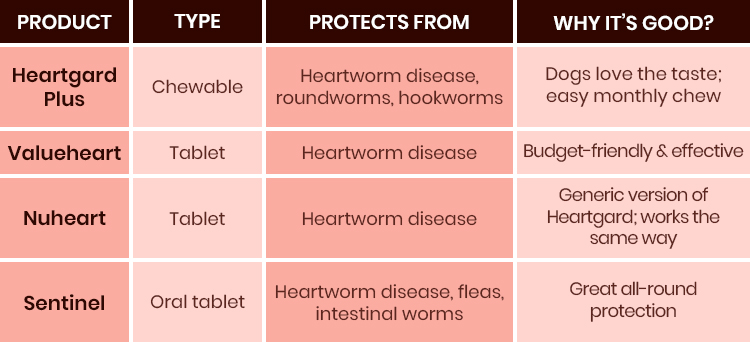 Nov 18, 2025
Nov 18, 2025

Heartworm disease creeps in quietly. No noise, no drama - that’s the problem. Dogs act normally, wag their tails, eat fine, and one day, you start noticing something feels off. Maybe they’re slower, maybe the cough doesn’t go away.
By then, the worms have already made a home inside the heart and lungs.
Heartworms don’t just “happen overnight.” They grow over months, fed by mosquito bites and our unawareness. Here’s everything dog parents need to know before it’s too late - from early warning signs to easy prevention tips.
It begins with mosquitoes. One bite from an infected mosquito and tiny larvae enter your dog’s bloodstream. These larvae, known as microfilariae, travel and grow slowly but steadily. Within about six months, they turn into adult worms that settle in the heart and blood vessels. And that’s when trouble begins.
A single worm can grow about a foot long. Now imagine dozens. The heart strains, breathing becomes harder, and the dog gets weaker, but it happens gradually, which is what makes it easy to miss.
Early heartworm signs often look like “nothing much.” A little cough here, some tiredness there. Dogs can act normally, eat well, and still have worms developing inside.
A few early things to watch for:
It’s so easy to confuse these signs with laziness or aging. But if you see even one of these and you live in a mosquito-prone area, it’s worth a vet check.
As months pass, the infection builds up. The heart and lungs begin struggling to handle the load. Dogs show subtle hints, but nothing dramatic. These are the “hidden” signs most people don’t notice until later.
If you’ve seen one or two of these, it doesn’t confirm heartworm, but it’s not something to ignore either. A blood test after vet consultation can catch it before it worsens.
When the disease advances, the symptoms are impossible to miss. The worms are now large, grown, and blocking blood flow. At this stage, the heart and lungs are under serious stress.
Take a look at advanced heartworm disease signs:
It’s a heartbreaking stage to see, and while treatment exists, it’s expensive and takes months of rest and recovery.
Heartworm prevention is a small habit that can save your dog’s life. Once you get used to a schedule, it’s effortless.
Here are a few simple dog heartworm prevention tips:
That’s it. No special tricks, just consistency.
These are the trusted, vet-approved options that pet parents rely on. They don’t just prevent heartworm disease; some fight other parasites, too.

All of these are available online at PetCareSupplies - genuine products, fair prices, and doorstep delivery.
Prevention is easy, treatment is not. It’s one of those things you’ll never regret being careful about.
Heartworm is one of those things that sneaks up quietly. It doesn’t hurt right away, but the damage keeps building. A few small actions, like regular preventives, vet checks, and mosquito control can make sure your dog never goes through that.
For trusted prevention, Heartgard Plus, Sentinel, Valueheart and Nuheart, and are among the reliable names you can count on. Find them easily at PetCareSupplies - safe, affordable, and delivered right to your door.
Heartworms are invisible enemies. But with steady care, your dog will never even know they existed.